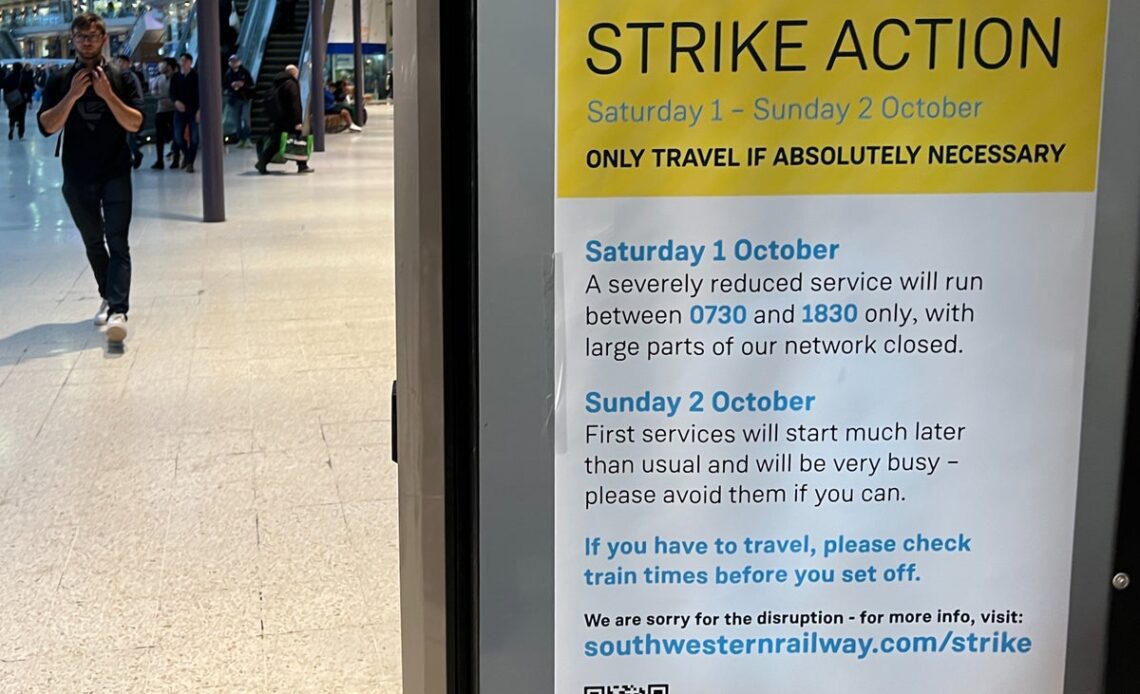Simon Calder, also known as The Man Who Pays His Way, has been writing about travel for The Independent since 1994. In his weekly opinion column, he explores a key travel issue – and what it means for you.
Say what you like about British productivity but one-day rail strikes have never yielded as much as they are this autumn. You can find proof at London Waterloo station.
“Strike action Saturday 1 and Sunday 2 October,” warn posters being put up at the UK’s busiest railway terminus. “Only travel if absolutely necessary.”
The RMT union, which is calling 40,000 workers out on strike for each of the next two Saturdays, will be delighted with this two-for-the-price-of-one deal.
The main rail union vowed to “bring the railway to an effective standstill” by striking. And now it seems to be getting two effective standstills, wrecking the travel plans of millions, for the loss of just a single day’s pay.
These 24-hour walk-outs mean late teams will not sign on for Saturday overnight shifts, leaving signal systems unstaffed and train movements incomplete at the resumption of play on Sunday.
In addition, train drivers belonging to Aslef and working for a dozen rail firms will strike on 1 and 5 October (with members at a 13th train operator, East Midlands Railway, joining in on 5 October). And on top of that, on 10 October, RMT members working for ScotRail will walk out.
As a result, rail passengers can be sure to avoid a strike-hit journey on only four of the first 10 days of next month. Each strike day (or post-strike day) is costing the industry tens of millions of pounds in lost or refunded ticket sales.
The Rail Delivery Group, representing train operators, says: “Revenue is 80 per cent of pre-pandemic levels. These strikes will once again hugely inconvenience the very passengers the industry needs to support its recovery.”
Look closer, though, at the RMT justification of the ScotRail strike, and you begin to see a possible way forward. The stoppage was called after the union rejected a 5 per cent pay offer.
The RMT general secretary Mick Lynch said: “ScotRail knows this offer is not good enough and needs to take into account the escalating cost of living crisis. Our members refuse to be made poorer and will exercise their industrial strength to let ScotRail know that they will not rest until they are paid what they deserve.”
That message is addressed to the Scottish government, which owns ScotRail, but it is equally aimed at the new UK…
Click Here to Read the Full Original Article at The Independent Travel…
